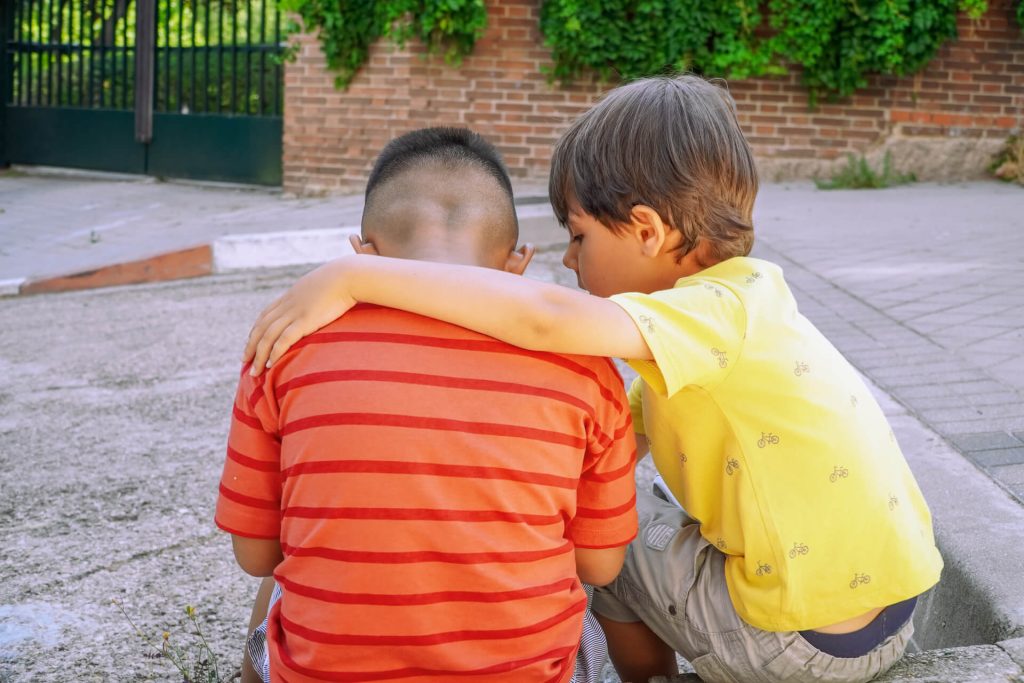A Guide for 21st Century Parents: Character Development Through Positive Psychology
Positive psychology is a field of psychology that focuses on researching the positive aspects of human life - how we can build happiness, emotional resilience and satisfaction. Instead of focusing on solving problems and difficulties, this approach emphasizes the importance of strengthening personal strengths, values and positive emotions, enabling individuals to achieve their full potential.
Key differences: Traditional vs. Positive psychology
Zamislite da je ljudski um kao kuća. Evo kako tradicionalna i pozitivna psihologija pristupaju „održavanju“ te kuće:
- What do they observe?
- Tradicionalna psihologija je poput majstora koji dolazi da popravi ono što je pokvareno. Fokusira se na „pukotine u zidovima“ i „pokvarene cevi“ – mentalne probleme i poremećaje koje treba popraviti.
- Pozitivna psihologija je više kao unutrašnji dizajner. Gleda šta je već lepo u vašoj „kući“ i razmišlja kako to naglasiti i unaprediti. Ona traži vaše jake strane i talente, pomažući vam da ih razvijete.
- How do they work?
- Tradicionalna psihologija često čeka da se pojavi problem, pa onda reaguje. To je kao čekati da krov prokišnjava pre nego što ga popravite.
- Pozitivna psihologija je proaktivna – kao redovno održavanje kuće. Ona vas uči kako da ojačate „temelje“ vašeg uma, tako da budete otporniji na životne oluje pre nego što one udare.
- What do they want to achieve?
- Cilj tradicionalne psihologije je često da vas vrati u „normalno“ stanje – da zaustavi bol, smanji anksioznost, ublaži depresiju. To je kao vratiti kuću u stanje u kojem ne propušta i ne raspada se.
- Pozitivna psihologija želi da vašu „kuću“ učini boljom nego ikad. Ona teži da vam pomogne da procvetate, da pronađete dublje zadovoljstvo i smisao u životu – kao da dodate predivnu baštu, solarni sistem i udoban prostor za opuštanje vašoj kući.
Ukratko, dok tradicionalna psihologija često „gasi požare“, pozitivna psihologija vas uči kako da „zasadite vrt sreće i uspeha“. Obe su važne – jedna vas spašava od padanja, druga vam pomaže da poletite.
Applications of Positive Psychology
Positive psychology is intended for everyone—children, adolescents, and adults. It particularly focuses on parents, teachers, and professionals working with children, providing them with tools and strategies to support children's emotional and psychological development. Through this approach, everyone can improve their quality of life and contribute to the happiness of others.
Positive psychology finds application in various areas of life:
- Education:
- Development of programs to strengthen student resilience
- Improvement of school climate and student engagement
- Business Environment:
- Programs to increase employee satisfaction and productivity
- Development of strengths-based leadership skills
- Healthcare:
- Integration of positive interventions in chronic disease treatments
- Programs to improve mental health of medical staff
- Personal Development:
- Coaching programs based on positive psychology principles
- Applications for mood tracking and gratitude exercises
How can positive psychology help your child?
Proaktivni pristup: Umesto da čeka probleme, pozitivna psihologija jača „temelje“ uma vašeg deteta, pripremajući ga za životne izazove.
Fokus na razvoj: Cilj nije samo vratiti dete u „normalno“ stanje, već mu pomoći da procveta i pronađe dublje zadovoljstvo u životu.
Character building: Through positive psychology, children develop key traits like empathy, curiosity, and resilience.
Global Impact of Positive Psychology
Positive psychology has found application worldwide:
- USA: Leading in research and application, with many universities offering specialized programs.
- UK: Integration into national programs to improve citizen wellbeing.
- Australia: Application in school programs to strengthen mental resilience in children.
- Scandinavian countries: Using positive psychology principles in shaping public policies for happiness and wellbeing of citizens.
- Japan: Adaptation of concepts to improve work environment and reduce stress.
How can parents use the principles of positive psychology? What can it bring to your family?
Parents who apply these principles create a stimulating and positive environment for their children. Instead of focusing on correcting mistakes, parents can focus on strengthening virtues, self-confidence, and resilience in children. This approach helps build a happier and more successful childhood, where children grow up with a positive image of themselves and their possibilities.
How can children become happier and more successful?
Children who grow up in an atmosphere of support and positive values develop empathy, curiosity, and self-confidence. Through encouragement and focus on their strengths, little ones learn how to face challenges, develop stable emotional intelligence, and build a healthy self-image. This process helps them discover their talents and become creative and innovative individuals who are ready to contribute to society.
What virtues and values should parents nurture in children?
U „Blistavim umovima“ verujemo da svako dete poseduje 24 jedinstvene snage ili „super moći“. Ove snage su zapravo životne vrednosti that help children grow, be happy and successful. Parents play an important role in encouraging them, and here are some key ones:
- Empathy
Empathy is the ability to understand and sympathize with others, and children who develop this trait find it easier to build healthy interpersonal relationships. This can be encouraged through conversations about others' feelings, through role-playing games or reading books through different experiences and situations, where children learn to recognize emotions in others. - Curiosity
Children naturally want to explore the world around them. Parents can encourage this trait by providing various activities and learning opportunities. For example, going out in nature or doing experiments can awaken curiosity and love for learning. - Self-confidence
Children with healthy self-confidence believe in their abilities and cope with challenges more easily. Parents can help build self-confidence by praising effort and dedication, not just final results. - Resilience
Resilience is a key trait that enables children to cope with failures and difficult situations. Teaching children that failure is not the end, but part of the path to success, can help them grow into emotionally stable individuals. - Cooperation
Through joint activities and games, children learn the importance of teamwork. Cooperation helps them develop sharing, listening, and problem-solving skills, which is key for successful social interactions in the future. - Gratitude
Teaching a child to appreciate the small things in life can contribute to their inner satisfaction and happiness. Keeping a gratitudejournal, where they write down things they are grateful for, helps them develop a positive outlook on the world. - Emotional Intelligence
Developing the ability to recognize and manage emotions contributes to children's emotional health. Parents can help by talking to children about their feelings and helping them learn how to deal with them.
How can you help your child develop these strengths?
Be a detective: Observe your child during play and daily activities. What do they enjoy most? This could be their natural strength.
Stvorite „kutiju uspomena“: Write down your child's small successes and beautiful moments. Review them together regularly.
Organize a family talent show: Let each family member show some skill or talent. This can reveal hidden strengths.
Tell stories about strengths: Make up stories about heroes who use different strengths to solve problems.
Vodite „dnevnik snaga“: Encourage your child to write or draw their successes and situations where they used their stronger sides.
"Beautiful Minds" - supporting parents in developing children's strength and character
The "Beautiful Minds" project was created from the need to provide support to parents - a platform that provides resources, advice, and activities for applying positive psychology in everyday family life. Our goal is to help you better understand your child and create an environment that encourages their emotional and psychological development.
Through educational articles, applications, and interactive tools, "Brilliant Minds" enables parents to inspire their children to become happy, empathetic, and successful individuals.
Conclusion
Pozitivna psihologija nije samo trend – to je moćan alat koji može pomoći vašem detetu da postane najbolja verzija sebe. Fokusirajući se na snage umesto na slabosti, stvaramo put ka srećnijem, ispunjenijem i uspešnijem životu.
U „Blistavim umovima“ verujemo da svako dete zaslužuje priliku da otkrije i razvije svoje jedinstvene snage. Naš cilj je stvoriti generaciju dece koja su ne samo uspešna, već i emocionalno inteligentna, empatična i otporna.
Through our platform, we offer parents resources, advice, and activities that stimulate the development of positive psychology in the family. We want to help you:
- Better understand your child
- Create an environment that encourages growth and development
- Build deeper and more lasting connections with your children
Through support, praise, and encouragement, parents can create a positive environment where children will flourish. Join "Brilliant Minds" and become part of a movement that changes your children's future for the better!
Questions for you:
- What strengths have you noticed in your child?
- How do you encourage the development of these traits in your family?
- Is there a trait you would like to develop more in yourself as a parent?
Your experience can be an inspiration for other parents, share it with us!





